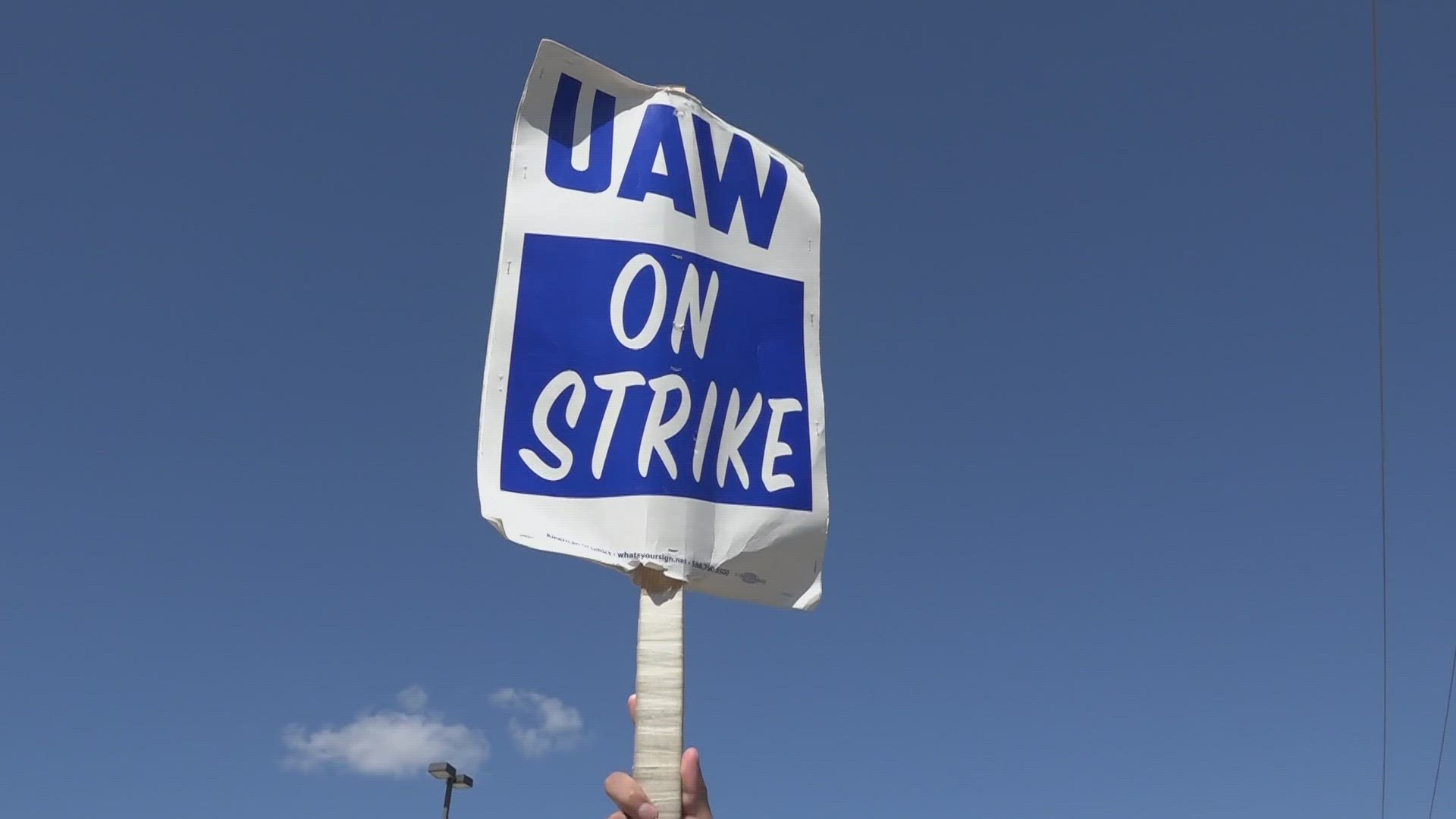WENTZVILLE, Mo. — In the first 10 days of the UAW strike, the United States economy lost more than $5 billion.
After 11 days on the picket line, members of UAW Local 2250 were holding firm in their demands of the Detroit automakers.
"If we don't take on this fight now it will just continue to get worse for these workers and workers across the country,” UAW Region 4 Director Brandon Campbell said.
Since the start of the strike, more than 18,000 UAW members have walked off the job in what Mitch Millstein, professor of supply chain analytics at the University of Missouri-St. Louis, called "a stroke of genius."
"What Sean Fain, the president of UAW, did in this later round is shut down the parts warehouses,” Millstein said. “Everybody thinks that's going to impact the assembly plants, but it's primarily going to affect your ability to get your car repaired."
Millstein admitted there are plenty of parts in the supply chain now, but he said that will quickly change as the strike continues.
"Two weeks from now, three weeks, four weeks from now, that inventory is going to go away,” Millstein said. “Then what happens when your transmission breaks and you can't get the parts you need? This is going to affect people in ways they never thought."
That extends to non-union auto workers at suppliers across the country.
"Those businesses can keep producing some inventory, but they're not going to last very long before it doesn't make sense for them to keep producing without getting paid,” Millstein said.
Millstein said that could put pressure on the big three automakers to strike a deal with the UAW, but if that happens sooner rather than later the impacts will still be felt by suppliers for the foreseeable future.
"They're not thinking about the potential to hollow out the labor force of the suppliers to the assembly plants,” Millstein said. “When that happens, or if, let's hope that doesn't happen because then we're months or years to get back instead of just days or weeks."
Magna, a manufacturer that employs thousands of non-union auto workers in Missouri and Illinois, sent 5 On Your Side this statement:
“Like many in the entire auto industry, we are closely monitoring the situation. As of right now, it would be premature to comment on overall impact to our operations. However, we have focused considerable attention on contingency planning to proactively address temporary business disruptions to our operations. We are prepared in terms of temporarily scaling back production on affected programs as efficiently as possible, while being equally prepared to ramp-up quickly when ready.”

